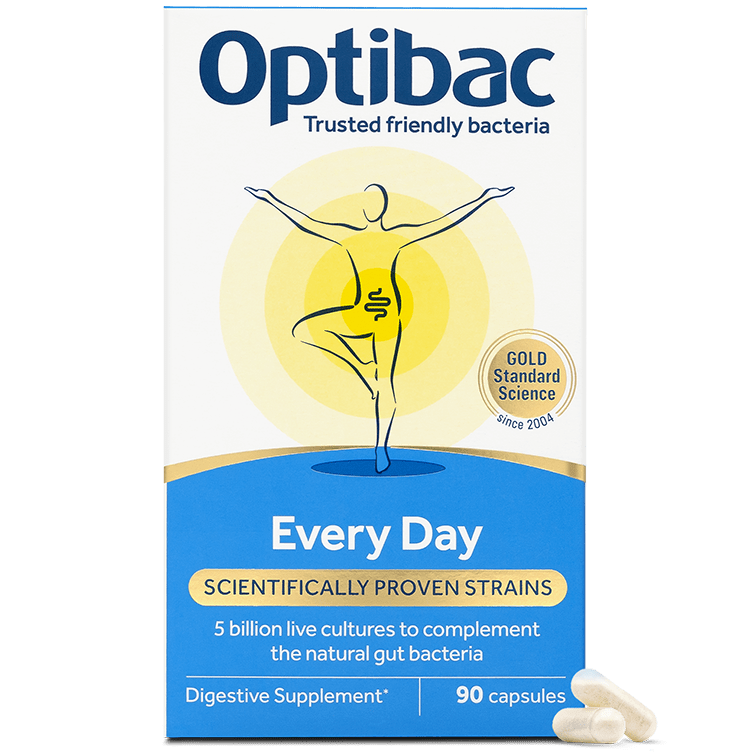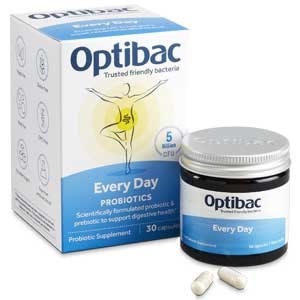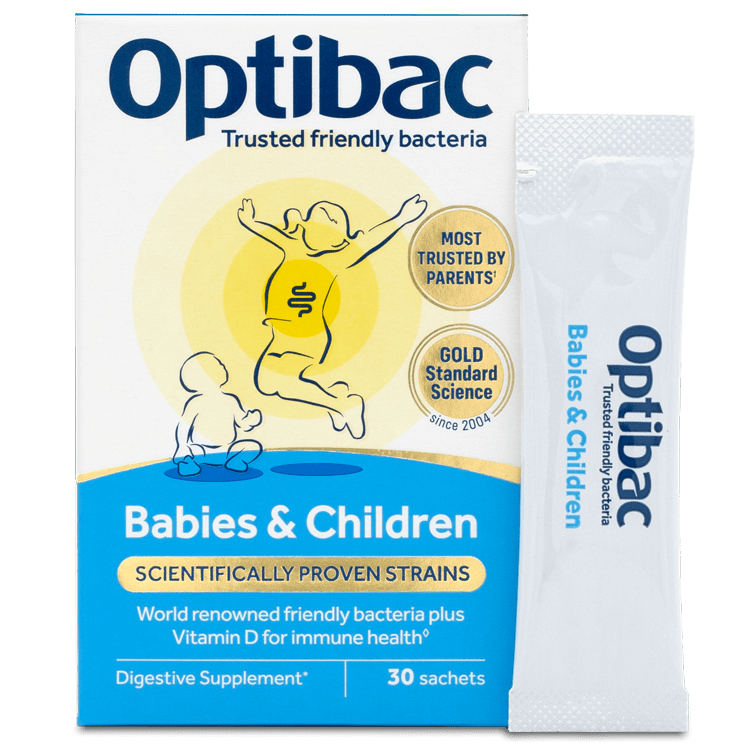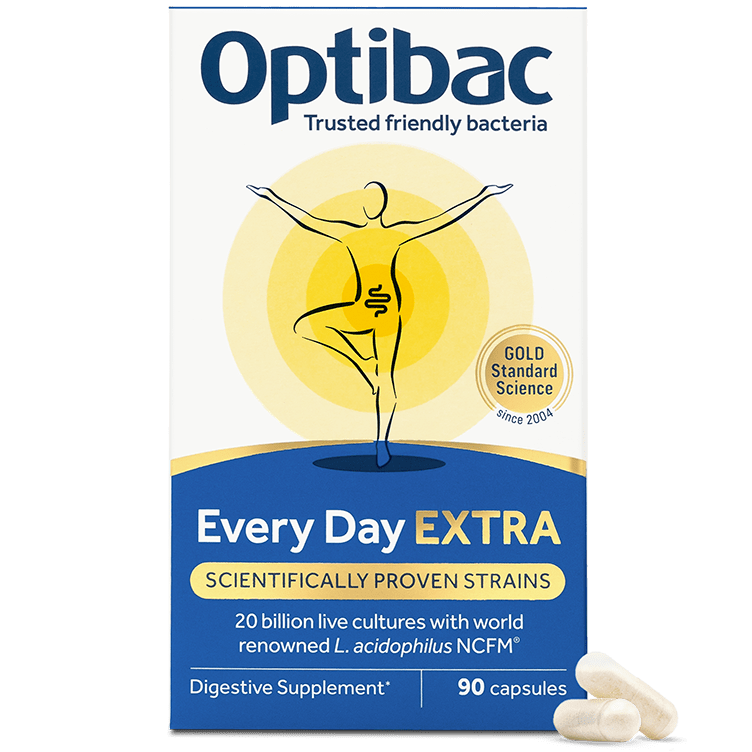
You're away from FREE US delivery Free US delivery (applied at checkout) on orders over $60.00
You have qualified for Free US delivery
Lifestyle
7 Little & Easy Steps to Improve Your Health This January
As another New Year starts many of us naturally turn to thinking about the future months and making plans for our best year yet. In the past, New Year resolutions have been foremost in people’s minds. But after another year of so much being taken away, do we really want to set lofty unsustainable goals and deprive ourselves of fun and happiness? Instead, our team at Optibac are focusing on the little, daily habits that build into long-term health. In this article we share our ideas for little and easy steps to a healthier you:
How can you start off the New Year right?
The key is to set realistic, achievable, meaningful goals to focus on.
One exciting practice that many of us at Optibac do is to create a vision board early in the New Year. A vision board is a visualisation tool that transforms dreams into action through inspiring words and pictures. You get to express your creativity by gathering images and words that serve as an image of your future.
Remember to display your vision board where you’ll be able to see it and gain inspiration – there is little point in creating your vision for the year then hiding it away in a drawer! Next to a bedroom mirror or inside the door of a kitchen cupboard are great places to stick a vision board. You’ll get a daily reminder, but any visitors won’t see it unless you want them to.
When creating visions and plans don’t rush the process. Relax and slowly reflect on what you want for the year ahead. It needs to be right (and achievable) for you.

7 simple actions to improve your health this January
1. Hydration first
Drinking a glass of water with a squeeze of fresh lemon first thing in the morning rejuvenates you from within. Think of how much happier your gut, skin and energy levels will feel within a few weeks of starting this daily practice. That’s not to say you need to give up your morning cuppa entirely, maybe just shift it back an hour and relish every sip guilt-free! Read our Family Morning Routine blog for more ideas on how to start your day right.
2. Get active
We all know that being physically active is one of the best things for our health1. Whether you prefer an energetic cycle or a gentle walk, try to schedule some activity into your day. Big exercise goals sit brilliantly on a vision board – perhaps you are already a consistent exerciser and have a dream of running a marathon or swimming the channel. Don’t forget that all goals need breaking down into small daily achievable actions. For more on sports and energy read some helpful tips from Sam, our Sports Nutritionist.
3. Consider supplementing daily
How about a daily supplement plan to get you into tip top health? In addition to a healthy diet, a daily probiotic supplement is a small change that makes all the difference. It’s a super easy thing to add into your morning routine and packs a big health punch. Many supplements, like vitamin D during winter months and most of the Optibac range, are designed for ongoing daily use.
Optibac Probiotics Every Day is our bestselling product for anyone looking for a daily probiotic supplement to support optimal digestive health and overall wellbeing.
4. Swap your daily G&T for G&V!
Why not keep a daily gratitude and victory log – also known as a G&V. Essentially, it’s a simple daily practice of writing down three things you are grateful for and three small (or big!) victories. A list like this is a fantastic way to get your brain focused on the positives in life – something that could see you through the darker, colder months and into Spring time. Our Nutritional Therapist, Louise, talks more about the benefits of gratitude in her blog The 8 Dimensions of Wellness.
5. Get fresh
Fresh foods that is! Fresh fruits and vegetables are packed with vitamins and minerals your body needs. Try a handful of salad on top of pizza, a bowl of peas alongside steak and chips, or an apple as a morning snack. Processed foods are undoubtedly convenient but fresh foods pack the nutritional punch for better energy and health2. To help you make healthy food choices over the festive period, read Festive Foods: our naughty and nice list.
6. Create a sleep routine
We know that a bedtime routine works for babies and children; the same holds true for adults. By switching off gadgets a good hour before sleep, and perhaps sipping a calming camomile tea, you’ll be winding down both body and mind. A regular bedtime and wake up time (yes, even at the weekend!) signals to your body that it’s time to sleep. Small actions, like moderating caffeine3 and alcohol4 so you sleep better, can make a huge impact on your energy levels and health. Our team have many self-care ideas.
7. Try new things
Instead of making more New Year resolutions that just don’t stick why not make this the year you take positive action and try new things? Your vision board may be full of beautiful pictures of flowers and plants, signifying a garden revamp goal, but you’re wondering how to find the time and energy to get started. Taking even just one small action, like following a different route on your daily walk, energises both mentally and physically.
As many of us are pushed for time, linking two actions together, so that the first one acts as a cue for the second one, is a great strategy. For example, after taking your morning supplements open your gratitude log. After just a few weeks of this, these two daily practices will become second nature.
Don’t forget to reflect periodically throughout the year as to how your daily practices and goals are going - it’s super motivating to see how far you’ve come. If you’re a visual person, then charts and trackers are amazing tools. Simply place a tick/dot/sticker every time you take your probiotic supplement, go for a run, or get to bed on time. Soon, you’ll be looking at your new healthy lifestyle with renewed energy and motivation.
Above all, have fun trying out small, easy steps to improving your health this January.
If you enjoyed this article, you may also like to read the following articles:
Dr Aisling’s Seven Top Tips to Feel Less Stressed
Guide to a Healthy Holiday Season
References
- Benefits of Exercise – NHS. https://www.nhs.uk/live-well/exercise/exercise-health-benefits/. Accessed December 16, 2021.
- A Rico-Campa et al., (2019) Association between consumption of ultra-processed foods and all cause mortality: SUN prospective cohort study. BMJ, 365: 1949
- N Chaudhary et al., (2016) Caffeine consumption, insomnia, and sleep duration: Results from a nationally representative sample. Nutrition, 32 (1193-1199)
- Soon-Yeob Park et al., (2015) The Effects of Alcohol on Quality of Sleep. Korean Journal of Family Medicine, 36(6): 294-299
Optibac Bestsellers
All products-
![Optibac Probiotics Every Day - Award images]() Bestseller
Bestseller -
![Optibac Probiotics Babies & Children | childrens probiotic with added Vitamin D]() Bestseller
Bestseller -
![Optibac Probiotics Every Day EXTRA | high strength probiotic | 90 capsules]() Bestseller
Bestseller


